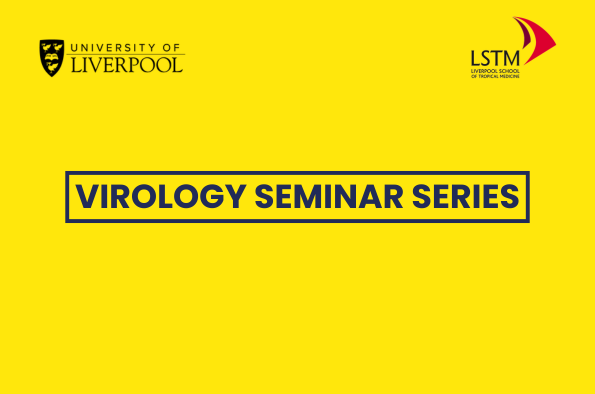
Virology Seminar Series co-hosted with LSTM
- Maximilian Erdmann
- Admission: Free to attend.
Add this event to my calendar
Click on "Create a calendar file" and your browser will download a .ics file for this event.
Microsoft Outlook: Download the file, double-click it to open it in Outlook, then click on "Save & Close" to save it to your calendar. If that doesn't work go into Outlook, click on the File tab, then on Open & Export, then Open Calendar. Select your .ics file then click on "Save & Close".
Google Calendar: download the file, then go into your calendar. On the left where it says "Other calendars" click on the arrow icon and then click on Import calendar. Click on Browse and select the .ics file, then click on Import.
Apple Calendar: The file may open automatically with an option to save it to your calendar. If not, download the file, then you can either drag it to Calendar or import the file by going to File >Import > Import and choosing the .ics file.
Co-hosted by the University of Liverpool and the Liverpool School of Tropical Medicine, the new Virology Seminar Series aims to foster collaboration across Liverpool. Each session will explore the latest advances in viral pathogenesis, immunology, and control strategies, whilst supporting early career researchers in their presentation skills. Each will feature a 20-minute talk followed by lively discussion!
Our first speaker is Max Erdmann. Max is a postdoctoral researcher from the Department of Biochemistry, Cell, and Systems Biology. His research background is in coronavirus molecular virology and reverse genetics; particularly the generation of reporter viruses and cell-based non-infectious replicon assays. Based within the Emmott Lab, Max’s research focuses on the autoproteolytic processing of the coronavirus polyprotein and how this regulates viral RNA replication. Reverse genetics is used to generate recombinant viruses deficient in viral protein processing, allowing to investigate the RNA replication and proteolytic phenotypes. The Emmott lab uses advanced proteomics and molecular virology techniques such as N-terminomics and strand-specific RT-qPCR.
During the seminars, we are hoping to offer a slice of pizza (funding pending), providing an opportunity to network with fellow researchers, clinicians, and students.
We look forward to your participation in what promises to be an inspiring series of discussions and collaborations.
